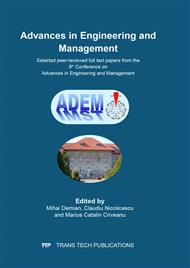p.3
p.9
p.15
p.25
p.31
p.37
p.47
p.55
p.63
Research on the Use of Integrated Management Systems
Abstract:
Many organizations have adopted or are adopting standards and / or specifications of management systems, such as ISO 9001, ISO 14001, OHSAS 18001, ISO / IEC 27001, ISO 22000, and ISO / IEC 20000, out of necessity or to align with trends. Unfortunately, it often results in a set of independent systems, with different goals and objectives. These fragmented systems are often documented in non-uniform styles, are under the control of different people and are audited separately. Integrated management systems (IMS) allow management to establish directions for the effective and efficient fulfillment of the organization's objectives. From managing employee needs to study the performance of competitors, encouraging good practice, and minimizing risk and maximizing resource utilization, the integrated management system approach can help the organization meet its strategic business objectives. Integration must be planned and implemented in a structured way. Many organizations have adopted the standards of the management system due to external pressures, following customer requests to implement a quality standard or external requirements to introduce an environmental system, and / or occupational health and safety [2]. On the other hand, the integration of management systems has beneficial effects on the whole business. Therefore, the first concern must be to understand the needs of the business, correlated with the mission and vision of the organization. In order to respond to the growing interest in an integrated approach to management systems and organizational risk management, the first step an organization must take is to define the common requirements of management systems. The authors aim in this article to present the advantages brought by IMS by their correct implementation within organizations. A review of the current integrated management systems is carried out and the problems that arise during use are exposed. The research includes a guide of good practices from the start to the end of an IMS implementation. Thus, the use of synergies and the integration of resources allows the creation of an efficient and simplified management system. Processes and procedures are viewed from several angles, in order to identify and optimize the IMS implementation process in order to obtain positive results.
Info:
Periodical:
Pages:
31-36
DOI:
Citation:
Online since:
September 2021
Price:
Сopyright:
© 2021 Trans Tech Publications Ltd. All Rights Reserved
Share:
Citation:


